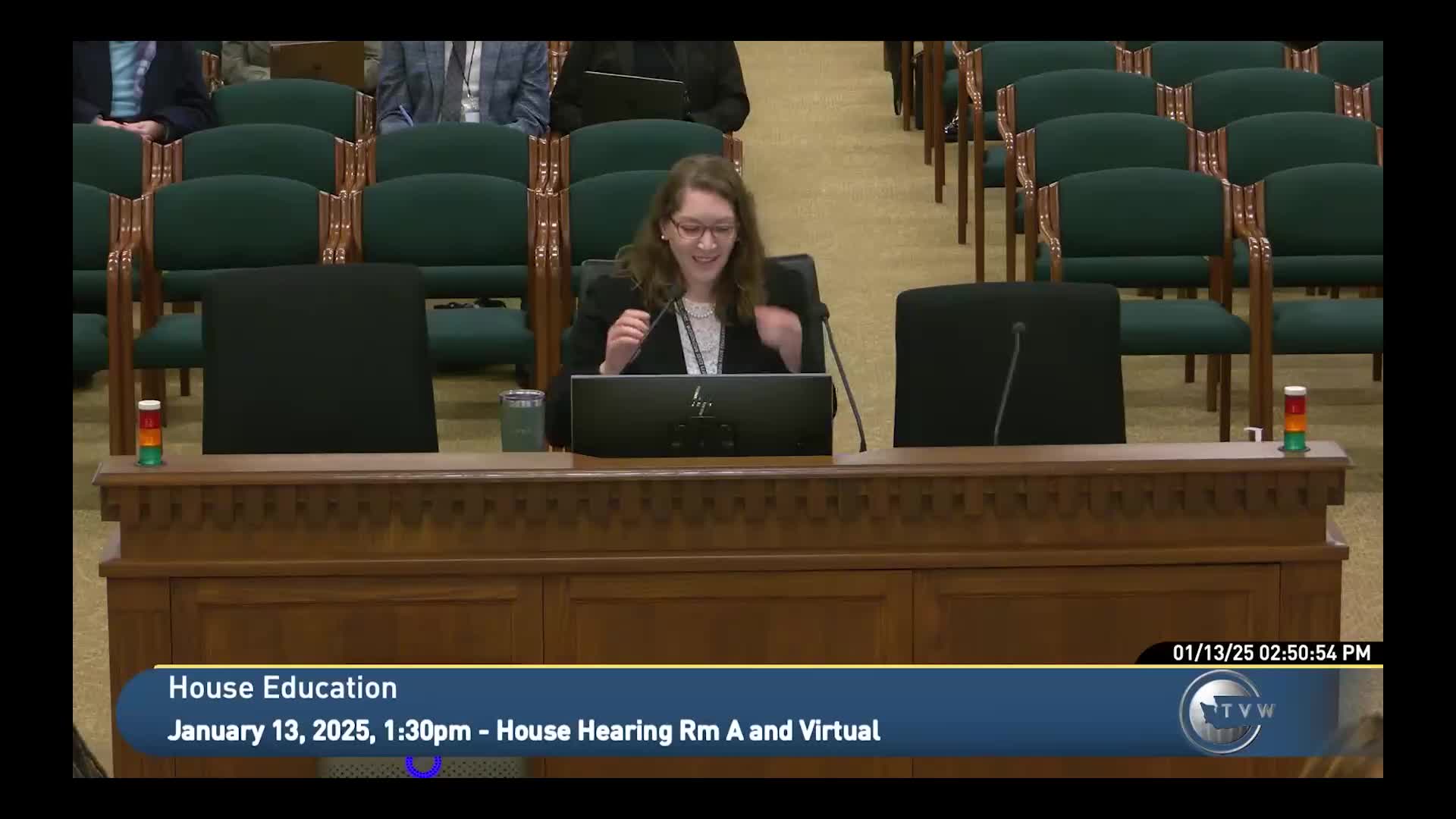Committee counsel explains ‘basic education,’ McCleary and what state must provide
Get AI-powered insights, summaries, and transcripts
Subscribe
Summary
Counsel to the committee briefed members on the constitutional and statutory meaning of 'basic education,' the McCleary decision's framing and the legislature’s funding responsibilities and minimum program components.
Megan Worgachie, counsel to the House Education Committee, told members that Washington’s constitutional duty to provide an education is "a judicially enforceable mandatory duty" and explained how courts and statutes have defined the program commonly called "basic education."
Worgachie described the jurisprudence and statutes that operationalize the constitutional mandate in Article IX, noting the Seattle School District case (1978) and the state Supreme Court’s 2012 McCleary decision as key milestones. "The right to an education is a positive constitutional right," she told the committee, and she said the content of basic education comes from three sources identified by the Supreme Court: Seattle School District case law, the four learning goals established in the Basic Education Act of 1993, and the state learning standards (previously termed the Essential Academic Learning Requirements).
Counsel reviewed statutory components the legislature has defined as part of the program of basic education: roughly 1,000 instructional hours over 180 days, instruction aligned to state learning standards, opportunity to complete 24 high‑school credits, and specified programs for groups of students (for example, Learning Assistance Program for students not meeting standards, Special Education, Highly Capable programs, transportation and statewide salary allocations). She said the legislature has the duty to review and revise the statutory program as needs evolve but cannot make reductions for mere fiscal expediency; revisions must be supported by an educational policy rationale.
Worgachie also described how the prototypical funding formula allocates staff and non‑staff resources to school configurations for allocation purposes and contrasted that with categorical funds, which must be used within the specified program. She closed by offering to answer members’ questions and noting the material will be used as the committee addresses policy over the coming session.
No action was taken during the briefing; members were encouraged to submit questions for staff follow‑up.
